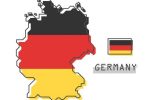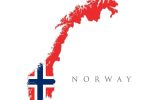Advertisements
Netherlands is a popular destination for immigrant workers around the globe, offering abundant opportunities through employer-sponsored visas. Known for its high quality of life and appealing lifestyle, the country attracts professionals eager to advance their careers. This guide offers a detailed overview for immigrants aiming to secure jobs with visa sponsorship in the Netherlands. It covers essential topics such as high-demand job sectors, work permit requirements, the visa application process, cost of living, average salaries, and more. Continue reading to discover everything you need to know about launching your career in the Netherlands as an immigrant.
Looking for jobs that provide visa sponsorship.
A key requirement for most work visas in the Netherlands is securing a job offer from an employer willing to sponsor your visa. Some jobs and skill levels are more in demand than others. The following industries and occupations are among those that frequently offer visa sponsorship:
Healthcare
The Netherlands boasts one of the most advanced and efficient healthcare systems in the world, consistently ranking high in global healthcare indexes. With a focus on accessibility, quality, and innovation, the Dutch healthcare system ensures that its residents receive top-tier medical services. This article delves into the key aspects of healthcare in the Netherlands, including its structure, funding, services, and the factors contributing to its success.
The Structure of Healthcare in the Netherlands
The Dutch healthcare system operates on a dual-level model, combining public and private healthcare to ensure universal coverage. It is governed by the principle of solidarity, where everyone contributes based on their income and has equal access to medical services.
Advertisements
Primary Care
Primary care is the cornerstone of the Dutch healthcare system. General practitioners (GPs) serve as the first point of contact for patients and play a pivotal role in diagnosing, treating, and referring individuals to specialists when necessary. Most Dutch residents are registered with a local GP, making it easy to access medical advice and treatment.
Secondary and Tertiary Care
For more complex medical needs, patients are referred to specialists or hospitals. The Netherlands is home to state-of-the-art hospitals and medical centers equipped with advanced technology and highly trained staff. Tertiary care, which includes specialized treatments like organ transplants and cancer therapy, is provided by academic medical centers.
Health Insurance: The Backbone of Dutch Healthcare
Healthcare in the Netherlands is funded through a mandatory health insurance system, ensuring that every resident has access to essential medical services. Here’s how it works:
Advertisements
- Mandatory Basic Health Insurance: All residents and employees must purchase basic health insurance from private insurers. The government defines the coverage, which includes general practitioner care, hospital services, prescription medications, maternity care, and mental health services.
- Supplementary Insurance: While the basic package covers essential care, individuals can opt for supplementary insurance to cover additional services like dental care, physiotherapy, or alternative treatments.
- Government Subsidies: To ensure affordability, low-income residents receive government subsidies to help pay for their insurance premiums.
Key Features of Dutch Healthcare
1. High Quality of Care
The Netherlands’ healthcare system is renowned for its high standards. Rigorous training programs for healthcare professionals, adherence to evidence-based practices, and regular quality assessments contribute to excellent patient outcomes.
2. Focus on Preventive Care
Preventive care is a priority in the Netherlands. Programs for vaccinations, cancer screenings, and lifestyle interventions aim to detect and address health issues early, reducing the burden on the healthcare system.
3. Efficient Use of Technology
The Netherlands is a leader in health informatics, utilizing electronic health records (EHRs) to streamline patient care. Telemedicine and digital health apps are also widely adopted, making healthcare more accessible and efficient.
4. Patient-Centric Approach
Patients in the Netherlands have significant autonomy and are actively involved in their care decisions. Shared decision-making between patients and healthcare providers ensures personalized treatment plans.
Challenges Facing Dutch Healthcare
Despite its many strengths, the Dutch healthcare system faces challenges:
- Aging Population: The increasing number of elderly residents places additional strain on healthcare resources.
- Rising Costs: Healthcare expenditure continues to grow, necessitating innovative solutions to maintain sustainability.
- Workforce Shortages: Like many countries, the Netherlands experiences shortages in healthcare professionals, especially nurses and specialists.
Innovations Driving Dutch Healthcare
The Netherlands is at the forefront of healthcare innovation, addressing its challenges through technological advancements and policy reforms:
- AI and Big Data: Artificial intelligence and big data analytics are revolutionizing diagnostics, treatment planning, and patient monitoring.
- Integrated Care Models: Collaborative care models that integrate primary, secondary, and social care services improve efficiency and patient outcomes.
- Sustainability Initiatives: Eco-friendly practices, such as green hospital designs and sustainable medical packaging, are reducing the environmental impact of healthcare.
Accessibility and Inclusivity
The Dutch healthcare system is designed to be inclusive and accessible to all residents, including expatriates and international students. Services are provided in multiple languages, and cultural competence is a key focus area to cater to the diverse population.
Tips for Navigating Healthcare in the Netherlands
For newcomers or expatriates, understanding the Dutch healthcare system can be daunting. Here are some tips:
- Register with a GP: Upon arrival, register with a local GP to ensure access to primary care.
- Choose the Right Insurance: Compare health insurance providers to find a plan that suits your needs and budget.
- Understand the Referral System: For specialist care, a referral from your GP is required.
- Keep Emergency Numbers Handy: In case of medical emergencies, dial 112 for immediate assistance.
The Future of Healthcare in the Netherlands
The Netherlands continues to evolve its healthcare system to meet the demands of a changing world. With a strong emphasis on innovation, sustainability, and patient-centered care, it is well-positioned to address future health challenges. By fostering collaboration among stakeholders and investing in cutting-edge technologies, the Dutch healthcare system will remain a global benchmark for excellence.
IT and Technology
The tech industry in the Netherlands is booming. Software developers, software engineers, cybersecurity experts, data analysts etc are in high demand. Many multinational tech companies have offices in the Netherlands and offer relocation packages for skilled foreign talents. Dutch language skills are usually not required for these English-speaking jobs.
Engineering
As a major manufacturing and industrial hub, the Netherlands needs engineers of all types – mechanical, electrical, civil, chemical etc. Major sectors hiring engineers include semiconductors, electronics, energy, automotive etc. While Dutch helps, most engineering companies conduct work in English.
Education
The Netherlands is renowned for its high-quality education system, consistently ranked among the best in the world. With a focus on accessibility, innovation, and inclusivity, the Dutch education system caters to students of all ages and backgrounds. This article explores the structure, strengths, and unique aspects of education in the Netherlands, while highlighting why it remains a preferred destination for international students.
Structure of the Dutch Education System
The education system in the Netherlands is divided into various stages, each designed to cater to the developmental and academic needs of students. These stages are:
1. Primary Education (Basisonderwijs)
Primary education is compulsory for children aged 4 to 12. The curriculum emphasizes foundational skills such as reading, writing, mathematics, and social sciences, while encouraging creativity and critical thinking. Schools also promote inclusivity, providing support for students with special needs.
2. Secondary Education (Voortgezet Onderwijs)
After primary school, students progress to secondary education, which is categorized into three main streams:
- VMBO (Pre-vocational secondary education): Aimed at preparing students for vocational training.
- HAVO (Senior general secondary education): Prepares students for higher professional education (HBO).
- VWO (Pre-university education): Designed for students aspiring to attend research universities.
The choice of stream depends on students’ academic abilities and interests, determined through assessments and consultations.
3. Higher Education
Higher education in the Netherlands is divided into two main types:
- Research Universities (WO): These institutions focus on academic research and theoretical knowledge, offering bachelor’s, master’s, and doctoral programs.
- Universities of Applied Sciences (HBO): These schools emphasize practical and professional education, preparing students for specific careers through hands-on training.
Both types of institutions enjoy global recognition for their high standards and innovative approaches.
4. Vocational Education and Training (MBO)
For students inclined toward practical skills, vocational education and training (MBO) offers courses in fields such as healthcare, technology, and business. This pathway ensures that students are job-ready upon graduation.
Key Features of Dutch Education
1. Bilingual and International Education
The Netherlands is a leader in bilingual and international education. Many schools offer dual-language programs, combining Dutch with English, French, or German. Additionally, international schools cater to expatriate families, ensuring continuity in education for students from diverse backgrounds.
2. Inclusive Education
The Dutch education system is committed to inclusivity, providing support for students with disabilities or special needs. Schools collaborate with parents and professionals to create individualized learning plans, ensuring that every child has an equal opportunity to succeed.
3. Student-Centered Learning
Dutch schools emphasize a student-centered approach, fostering creativity, critical thinking, and independence. Teachers encourage active participation, collaboration, and problem-solving, preparing students for a dynamic and competitive global environment.
4. Innovation and Technology
The Netherlands integrates technology into its education system, equipping students with digital literacy skills essential for the modern world. Interactive tools, online learning platforms, and virtual classrooms enhance the learning experience.
Education for International Students
The Netherlands is a top destination for international students, offering over 2,000 English-taught programs across various disciplines. Key factors attracting international students include:
- Globally Recognized Degrees: Dutch degrees are highly regarded worldwide, enhancing career prospects.
- Affordable Tuition Fees: Compared to other Western countries, the Netherlands offers relatively low tuition fees for high-quality education.
- Scholarships and Grants: Numerous scholarships, such as the Holland Scholarship and Erasmus+ program, make education more accessible for international students.
- Multicultural Environment: With students from over 160 countries, the Netherlands provides a diverse and welcoming atmosphere.
Challenges Facing Dutch Education
Despite its strengths, the education system in the Netherlands faces certain challenges:
- Teacher Shortages: Increasing demand for educators, especially in primary and secondary schools, poses a significant challenge.
- Rising Student Population: Urban areas experience overcrowded classrooms due to a growing student population.
- Balancing Innovation and Tradition: Striking a balance between adopting new technologies and maintaining traditional teaching methods remains an ongoing concern.
Innovations in Dutch Education
The Netherlands is proactive in addressing these challenges through innovative solutions:
- Flexible Learning Pathways: Initiatives to allow students to switch between education streams facilitate lifelong learning.
- Sustainability Education: Schools incorporate sustainability topics into their curricula, preparing students to address global environmental challenges.
- EdTech Advancements: Partnerships with technology companies help integrate advanced tools into classrooms, enhancing the teaching and learning experience.
Tips for Navigating the Dutch Education System
For expatriates and international students, understanding the nuances of the Dutch education system is crucial. Here are some tips:
- Understand the Streams: Familiarize yourself with the secondary education streams to make informed decisions about your child’s future.
- Explore International Schools: For non-Dutch speakers, international schools can provide a seamless transition.
- Learn the Language: While many programs are offered in English, learning Dutch can enhance your experience and integration.
- Utilize Resources: Leverage online resources and local education offices for guidance on school selection and application processes.
The Future of Education in the Netherlands
The Netherlands continues to evolve its education system to meet the demands of a rapidly changing world. Key focus areas include:
- Digital Transformation: Expanding the use of AI, virtual reality, and gamification in education.
- Lifelong Learning: Encouraging continuous learning through accessible adult education programs.
- Global Collaboration: Strengthening international partnerships to enhance research and student exchange opportunities.
Agricultural and Food Industry
Despite urbanization, agriculture and food production remain important Dutch industries. Dairy farms, greenhouses, food processors hire foreign workers for roles like operators, technicians, supervisors. Dutch language proficiency expected to vary depending on the employer and role.
The best way to search for jobs with visa sponsorship is to directly check company career websites, search engines like Indeed.nl, LinkedIn and specialized recruitment sites. Professional networking is also helpful to find hidden opportunities. Job fairs, employee referrals can open doors.
Work permit and residence permit process
Once you secure a job offer, your employer will initiate the work permit application process on your behalf. Here are the basic steps:
- Job offer from Dutch employer – The offer letter must meet strict income/wage criteria set by IND (Immigration Services).
- Work permit application – Employer submits application online with all required documents like employment contract, credentials proof, proof of wage level etc. Processing time is usually 4-6 weeks.
- Work permit decision – If approved, the IND issues a work permit notification.
- Residence permit application – With work permit, you can now apply for a residence permit (mvv) from Dutch embassy/consulate in your home country.
- Collect residence permit – Once issued, you enter Netherlands and receive your residence permit card within a few days of arrival.
- Extend/renew as needed – Work/residence permits are typically issued for 1-3 years initially. They can be extended by repeating the process if still employed. After 5 years, you may qualify for permanent residency.
It is important to meticulously follow all steps and paperwork. Hiring immigration lawyers helps navigate the process smoothly. Employers registered under highly skilled migrant scheme have a simplified approval route.
Cost of living and typical salaries
The cost of living in Netherlands is moderate to high compared to many other European nations. Some estimated monthly expenses:
- Rent: €800-€1500 for a one bedroom apartment in a city.
- Utilities: €150-€300 depending on energy usage.
- Food: €250-€400 per month for groceries.
- Transportation: €100-€150 for public transit depending on location.
- Entertainment/misc: €150-€250.
A comfortable single person budget ranges between €1500-€2500 per month. Salaries vary significantly by occupation, industry and experience. Some indicative salaries after tax:
- Nurses: €2400-€4200
- Software engineers: €3000-€5500
- Teachers: €2400-€3800
- Engineers: €3000-€6000
- Physicians/Doctors: €4000-€9000
Salaries in larger tech companies, oil/gas industry tend to be on the higher end of these ranges. Taxes are high in Netherlands so take-home pay will be lower than the gross salary. However, healthcare is largely subsidized and social security is comprehensive here.
##Dutch language and culture
Despite English proficiency being widespread, learning the Dutch language will be advantageous in the long run, both professionally and for integration into society. Most Dutch appreciate the effort to learn their native tongue. Basic conversational Dutch can be acquired within 6 months with regular practice. Culture in Netherlands is largely secular and liberal. Some cultural aspects immigrants adapt to include:
- Punctuality in professional settings
- Maintaining cleanliness in public places
- Respecting personal space concept of “fietsen”
- Following traffic rules strictly while cycling
- Embracing weekends off to relax in nature
Overall Netherlands provides a high quality of life for immigrants, though the transition takes adjustment. With an open and tolerant attitude, cultural learning happens gradually over time.
Most Asked Questions about Netherlands Jobs
What job sectors have most opportunities besides IT?
Some other in-demand industries include healthcare, engineering, education, agriculture/food processing that offer immigrant jobs with visa sponsorship.
How easy is it to get a work permit approved?
Work permit approval depends on factors like your skill level, education, experience matching the job. Generally, highly skilled jobs in shortage occupations have higher chances of smooth approval. Following all procedures meticulously also helps.
What is the process after getting a residence permit?
After entering Netherlands with the residence permit (mvv), you must register your address with the local municipality within 5 days. You can then focus on formally starting your new job, arranging for healthcare insurance and other logistical requirements of your move.
How long does it take to get permanent residency?
The general requirement is 5 years of continuous legal residency in Netherlands. During this period, you need to meet conditions like having a valid work/residence permit, earning above the minimum income threshold, not being absent from the country for long periods etc. After 5 years, you can apply for permanent EU residency.
Is it difficult to learn Dutch as a foreigner?
Learning a new language as an adult requires dedication, but Dutch is often regarded as one of the easier languages for English speakers due to its similarities to English. With consistent self-study and practice, you can develop basic conversational skills within 6 months to a year, depending on your efforts and learning style. Achieving full proficiency typically takes 2 to 3 years. Immersion and engaging in language exchange activities can significantly accelerate your progress.
Advertisements







Leave a Comment